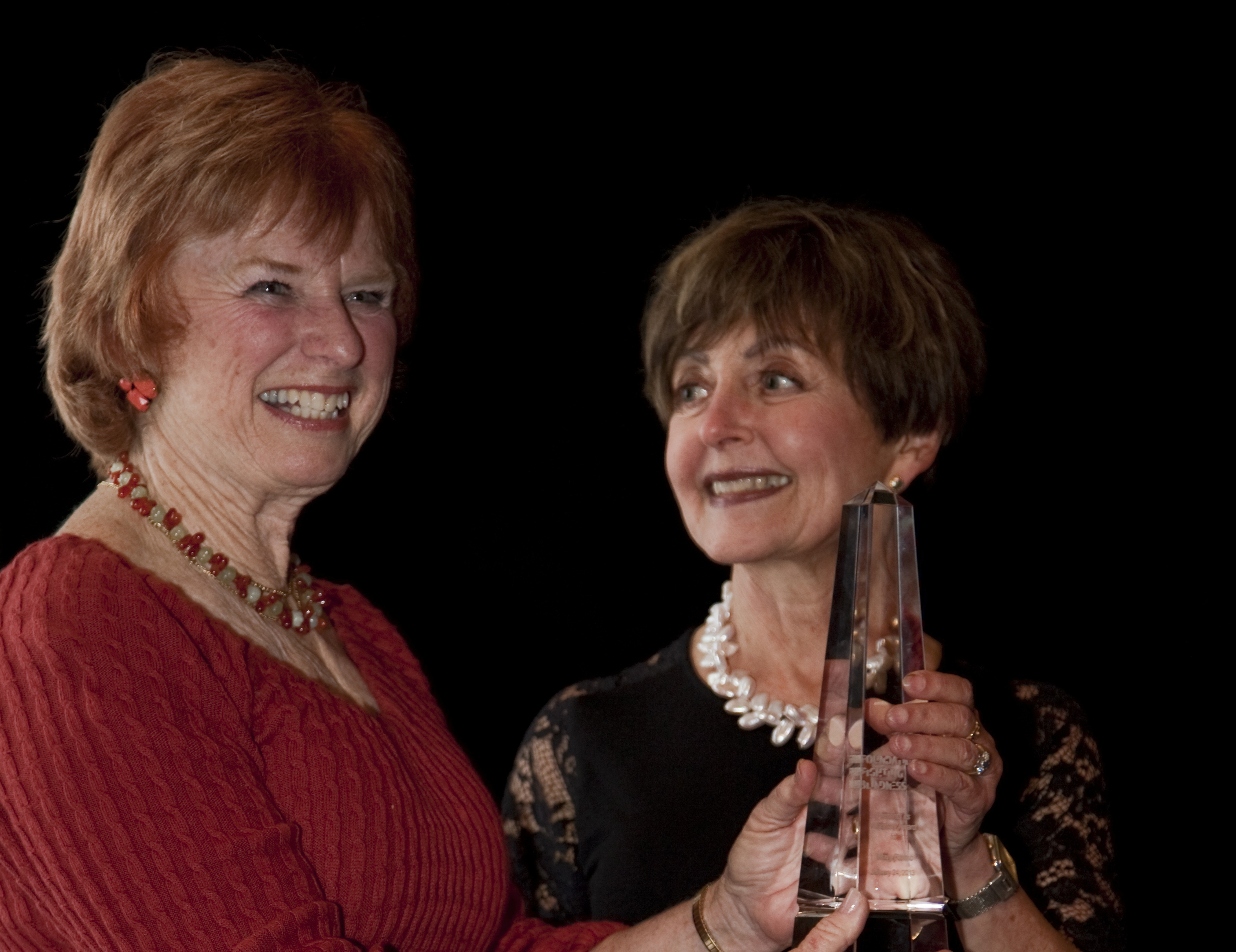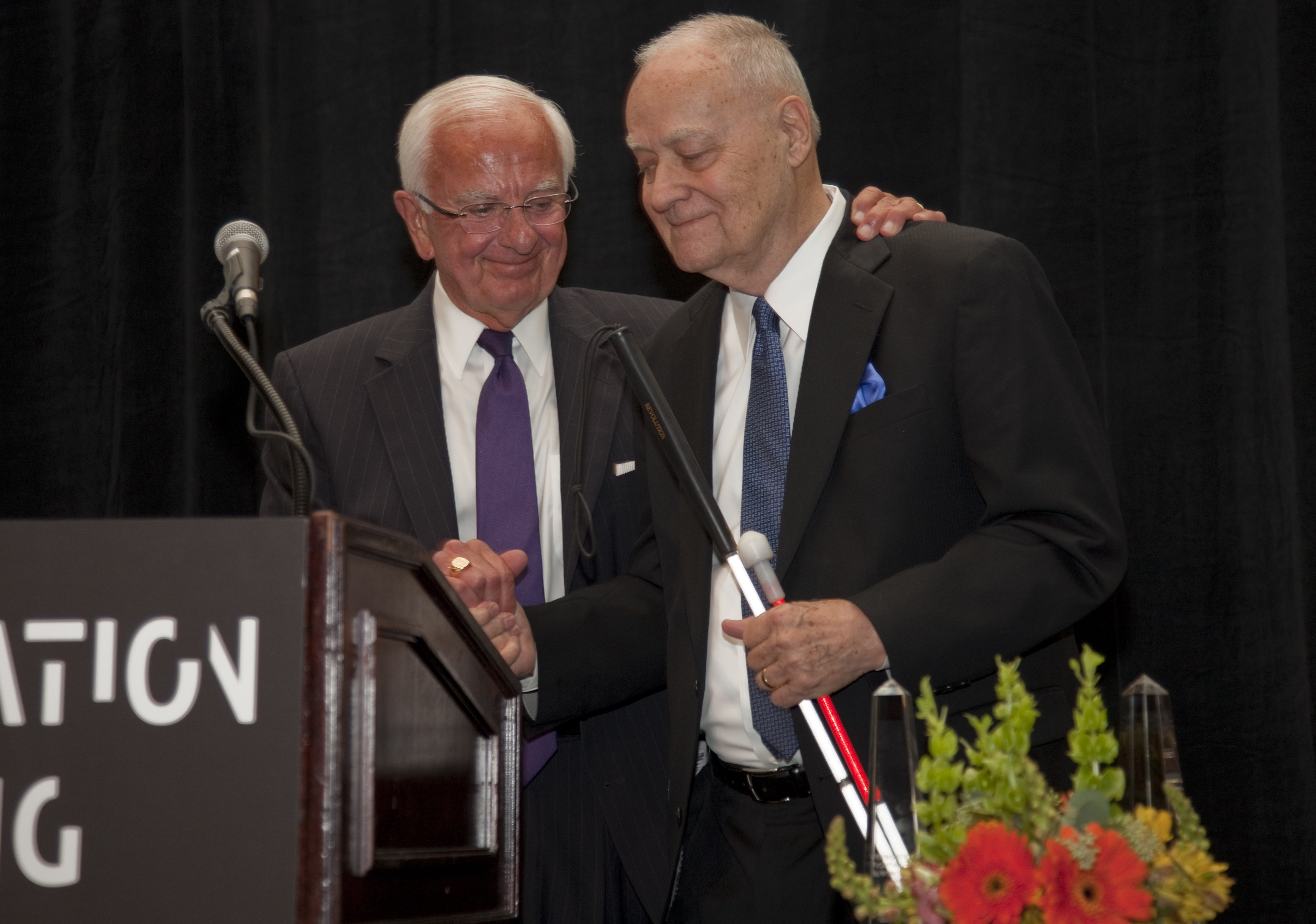Pitch-Black Elegance
Dining in the Dark to Benefit the Blind

I could tell it was my turn because I could smell her perfume as she drew nearer, in the dark. She explained later that she slid her hand along my arm, but her touch was so delicate that I didn’t notice. She placed the plate in front of me, and then she was gone. That was on January 24, in the Grand Ballroom of Fess Parker’s Double Tree Resort, at Dining in the Dark, a fundraiser for the Foundation Fighting Blindness.
Some 180 guests paid $200 a plate to eat in half an hour of pitch blackness. If you wanted to go to the restroom, one of the servers would guide you along a maze of ropes to the hallway. Not even the exit signs were lit up. (However, there were two fire marshals in attendance — wearing night vision goggles, a fact that was unannounced to the crowd. Had we known, more of us probably would have made the effort to find and use our forks and knives instead of eating with our hands. I did manage to find the bottle of wine and my glass.) We had chicken breasts stuffed, perhaps, with goat cheese; potatoes au gratin (or was that quiche?), and carrots and broccoli stalks.

Before the lights went out, during salad, and afterwards, during dessert, we listened to accolades for the evening’s two honorees, David Winter and Mary Romo. Winters, the former president of Westmont College, was struck blind suddenly in 1998, losing 90 percent of his vision over the course of three weeks, but nevertheless serving out the three years left until his retirement partly to show, he said, that blind people are capable. He has since served as interim headmaster of Providence Hall High School and returned to Westmont in 2006 to fill in as interim president there.
Mary Romo, blind since high school due to juvenile macular degeneration, worked as a speech and language specialist in the Goleta schools for 30 years. On the Friends of the Public Library Board, she particularly promoted expansion of the audio book collection. She is an avid book-clubber and walker. Friends told hilarious misadventure stories about her — one of which involved her unwittingly introducing herself at a party, in her typically warm and outgoing manner, to her husband, John Romo, who replied, “Glad to meet you. I’m your husband.”
The Fighting Blindness Foundation began in 1971 with the idea of creating a network of researchers for diseases of the retina, which is still it’s focus, explained James Minow, the foundation’s chief development officer, a former Santa Barbara City College development director, and graduate of UCSB and of Cabrillo High School in Lompoc. Two years later the foundation had established a laboratory at Harvard University. UCSB’s is among the 70-plus labs it now helps fund, specifically work at the campus’s Neuroscience Research Institute. The Thursday night event raised almost $100,000.
After the entree, when the lights came up, I could see that my server, a gorgeous young person, was wearing dark glasses. All of the servers that evening were visually impaired or blind. Her name is Margarita Campillo, and she works as a waitress at Opaque in Santa Monica, a haute cuisine restaurant that specializes in dining-in-the-dark experiences. (There is another one in San Francisco.) I would love to go there and actually use silverware, and linger longer over the meal. I’m hoping they will open one in Santa Barbara. Besides heightening the other senses, dining in the dark is strangely relaxing.
“People say their sense of time expands,” said Campillo.



